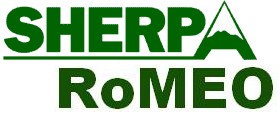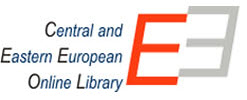PERSPECTIVE OF COGNITIVE THINKING AND REFLECTIVE TEACHING PRACTICE
DOI:
https://doi.org/10.5937/IJCRSEE1902001MKeywords:
cognitive thinking, permanent improvement, self-evaluation, reflectivity, teaching practiceAbstract
The factor analysis was used to ascertain the factors reflecting the most important attitudes of the respondents concerning reflective thinking in the classroom: self-evaluation, feedback and recording, improvement and analysis of teaching materials, assessment, concepts and misconceptions, construction of knowledge, metacognition and permanent improvement. The results of this research showed statistically significant differences among the aforementioned factors concerning the cycle of education (elementary school teachers and middle school teachers) and work experience (0-5, 6-10; 11-20; over 20 years of experience). The differences were obtained by parametric statistics, calculated using the t test and ANOVA test, p<0.05.
Downloads
References
Arsal, Z. (2017). The impact of inquiry-based learning on the critical thinking dispositions of pre-service science teachers. International Journal of Science Education, 39(10), 1326-1338. https://doi.org/10.1080/09500693.2017.1329564
Bognar, B. (2013). Initiating teachers’ action research: Empowering teachers’ voices. Online Submission, Educational Journal of Living Theories, 6(1), 1-39. https://eric.ed.gov/?id=ED546485
Choy, S. C. & Oo. Pou San (2012). Reflective Thinking and Teaching Practices: a Precursor For Incorporating Critical Thinking into The Classroom? International Journal of Instruction, 5(1), 167- 182. Retrived from: https://eric.ed.gov/?id=ED529110
Cunliffe, A. L. (2016). “On becoming a critically reflexive practitioner” Redux: What does it mean to be reflexive?. Journal of Management Education, 40(6), 740-746. https://doi.org/10.1177/1052562916668919
Dewey, J. (1933). How we think: A restatement of the relation of reflective thinking to the educative process. Boston; New York: D.C. Heath & Company. Retrived from: https://opus4.kobv.de/opus4-Fromm/frontdoor/index/index/docId/7969
Dyankova, G. (2018). Research of cognitive exchange specifics in teachers academic training. International Journal of Cognitive Research in Science, Engineering and Education (IJCRSEE), 6(3), 1-14. https://doi.org/10.5937/ijcrsee1803001D
Ennis, H. (2011a). Critical thinking: Reflection and perspectives. Part I. INQUIRY: Critical Thinking Across the Disciplines. 26(1), 4-18. https://10.5840/inquiryctnews20112613
Ennis, H. (2011b). Critical thinking: Reflection and perspectives. Part II. INQUIRY: Critical Thinking Across the Disciplines. 26(2), 5-19. https://10.5840/inquiryctnews201126215
Ennis, R. H. (1989). Critical Thinking and Subject Specificity: Clarification and Needed Research. Educational Researcher, 18(3), 4–10. https://doi.org/10.3102/0013189X018003004
Facione, P., & Gittens, C. (2013). Think critically (2nd ed.). New York, NY: Pearson.
Farrell, T. S. (2003). Reflective practice in action: 80 reflection breaks for busy teachers. Corwin Press.
Feucht, F. C., Lunn Brownlee, J., & Schraw, G. (2017). Moving beyond reflection: Reflexivity and epistemic cognition in teaching and teacher education. Educational Psychologist, 52:4, 234-241. https://doi.org/10.1080/00461520.2017.1350180
Gorli, M., Nicolini, D., & Scaratti, G. (2015). Reflexivity in practice: Tools and conditions for developing organizational authorship. Human Relations, 68(8), 1347–1375. https://doi.org/10.1177/0018726714556156
Hamilton, S. J. (2005). Development in Reflective Thinking. Abstract retrieved May 25, 2008.
Impedovo, M. A., & Khatoon Malik, S. (2016). Becoming a Reflective In-service Teacher: Role of Research Attitude. Australian Journal of Teacher Education, 41(1).http://dx.doi.org/10.14221/ajte.2016v41n1.6
Larrivee, B., & Cooper, J. M. (2005). An educator’s guide to teacher reflection. Wadsworth Publishing Company.
Pässilä, A. H., Oikarinen, T., & Harmaakorpi, V. (2015). Collective voicing as a reflexive practice. Management Learning, 46(1), 67–86. https://doi.org/10.1177/1350507613488310
Pithers, R. T., & Soden, R. (2000). Critical thinking in education: A review. Educational research, 42(3), 237-249. https://doi.org/10.1080/001318800440579
Pravilnik o stalnom stručnom usavršavanju i napredovanju zvanja nastavnika (Službeni glasnik RS, broj 81/2017) [Official Gazette of RS, no.81/2017] Retrived from: http://www.pravno-informacioni-sistem.rs/SlGlasnikPortal/viewdoc?uuid=463157e7-5f31-4f6f-b8e7-9500495e219a
Radulović, L. (2011). Obrazovanje nastavnika za refleksivnu praksu. Beograd: Filozofski fakultet
Ripamonti, S., Galuppo, L., Gorli, M., Scaratti, G., & Cunliffe, A. L. (2016). Pushing Action Research Toward Reflexive Practice. Journal of Management Inquiry, 25(1), 55–68. https://doi.org/10.1177/1056492615584972
Roberts, P. (2016). Reflection: A renewed and practical focus for an existing problem in teacher education. Australian Journal of Teacher Education, 41(7), 2. http://dx.doi.org/10.14221/ajte.2016v41n7.2
Ryan, M., & Bourke, T. (2013). The teacher as reflexive professional: Making visible the excluded discourse in teacher standards. Discourse: Studies in the cultural politics of education, 34(3), 411-423. https://doi.org/10.1080/01596306.2012.717193
Scriven, M. & Paul, R. (1987). Defining Critical Thinking. Retrieved December from: http://www.criticalthinking.org/pages/defining-critical-thinking/410
Schön, D. (1983). The Reflective Practioner. New York: Basic Books.
Schön, D. (1987). Education the reflective practitioner. San Francisko: Oxford.
Scriven, M., & Paul, R. (1996). Defining critical thinking: A draft statement for the National Council for Excellence in Critical Thinking. Retrieved March 23, 2017. Retrived from: http://www.criticalthinking.org/pages/defining-critical-thinking/766
Published
How to Cite
Issue
Section
License
Copyright (c) 2019

This work is licensed under a Creative Commons Attribution-NonCommercial-NoDerivatives 4.0 International License.



























